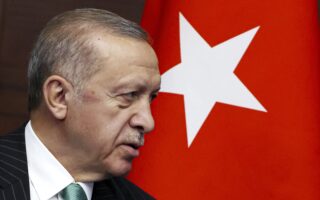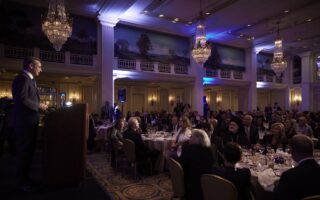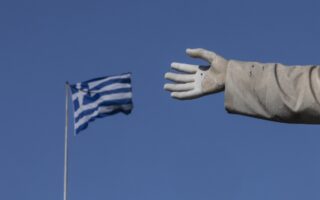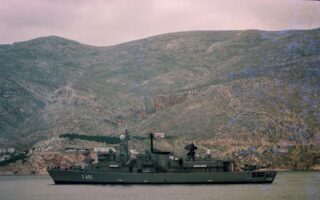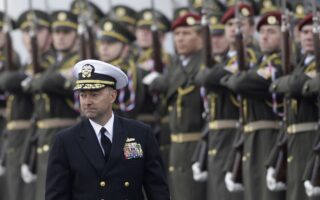Hellenism and the importance of education
The emblematic Greek-American leader who will be honored by Kathimerini with the 'Ηγέτης' award, talks about his life
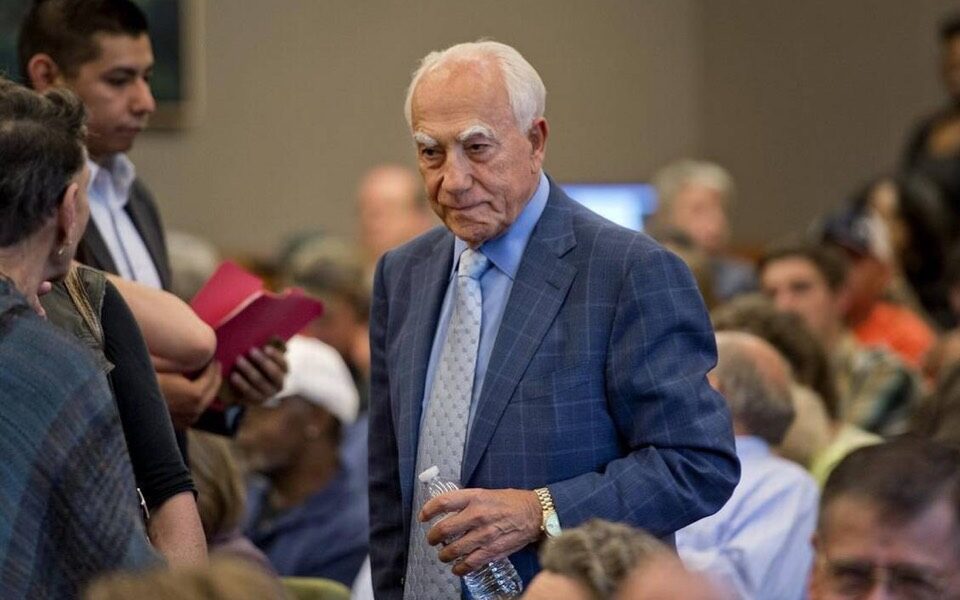
A pre-eminent member of the Greek-American community, Angelo Tsakopoulos, is being honored by Kathimerini in Washington on Monday with the “Ηγέτης” (leader) award for his outstanding contribution to Hellenism over the decades.
A staunch believer in the value of the Greek letters, he has dedicated a lot of time and significant monetary resources to the promotion of Greek studies at some of the top universities in the United States. Little surprise, therefore, that in this interview with Kathimerini, Tsakopoulos draws particular attention to Greek studies and to the promotion and defense of the universal ideas of democracy, freedom and logic, stating that the letters and ideals of Hellenism are the “light of the world.”
He also talks about his life, his early footsteps in America, his studies and his family, while also referring to his contacts with Greek politicians like Andreas Papandreou and Konstantinos Mitsotakis. He also discusses the important role he played in the 1996 Imia crisis by personally reaching out to then US President Bill Clinton, asking him to do what he could to prevent a Greek-Turkish war.
Let’s start with your life, your first steps as a child, a teenager, and then as a businessman in the US.
I was born in Rizes, a little village outside Tripoli in Tegea, a beautiful place in Arcadia in the Peloponnese. I left Greece and came to America when I was 15 – 71 years ago. We moved to a beautiful country that welcomed me and many other Greeks. I had family there. Two of my father’s brothers took me into their home as their own child. They helped me a lot. I was lucky to go to school in America; as we all know, education is one of the greatest things that one should accomplish. We belonged to the Greek community. The first year in Chicago, then four years in California Valley. I went to school, then attended the University of Illinois and then Sacramento State University. Getting an education was very important, very helpful. I have a large family. Six children, 11 grandchildren, and four great-grandchildren.
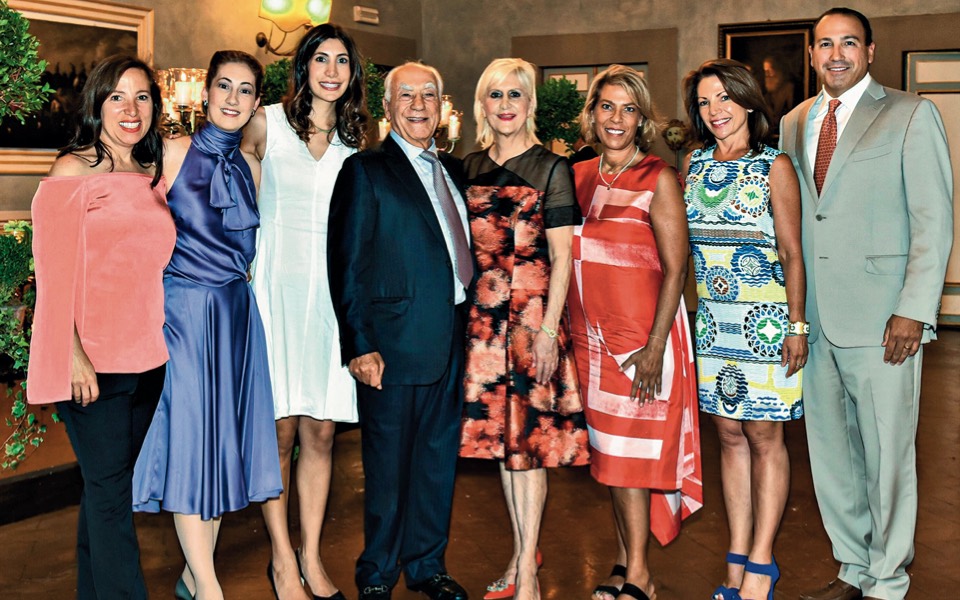
You mentioned the importance of education. Is that the reason you feel the need to help with supporting Hellenic studies in the US to promote Hellenism?
Exactly. Plato mentions the words of Socrates: Without education, without rational education, humankind will not survive, we will perish. Well, we in America try to promote the Hellenic education as much as we can. Teach logic. Aristotle’s education. Aristotelian logic. That, and the knowledge of history, of course, are the basis of a good education. So, we try to help by promoting it, and we hope that bit by bit, we will make a difference. We try to include the teaching of Hellenism in universities. It is the light of the world. It is the foundation. The knowledge of history and logic will help us solve the issues that threaten humanity.
Some thoughts on the relationship between the US and Greece from your angle over these years?
It has been exceptional. For many, many years. Americans came to fight for Greek independence. And the Greeks have been allies of the United States in every war. America appreciates that. Unfortunately, there were a few times the CIA got carried away. Overall, the Americans love Hellenism. There were periods in American history when it influenced American life to a great degree, like in the 1800s, for almost a whole century. At that time the Americans appreciated studying Hellenism. So the relations are good. We wish to keep them that way because both countries believe in freedom, free thought and democracy. We hope that we’ll be able to help in that direction.
Throughout your life, you have worked – for the benefit of Greece in the US – with US presidents or members of Congress and Greek prime ministers. Can you share some thoughts on these meetings or efforts to promote Hellenism or try to help Greece in difficult moments?
It’s the Greek ideal to get involved in public life. I’ve been fortunate to have met a fellow by the name of George Ioannidis. He owned a restaurant where I worked as a waiter in Sacramento, California. He was very much involved in the politics of the city and the state and he encouraged me to do the same. So, I started from my days in college when I got to meet the governors of the state. I worked at the governor’s house etc. And from then on I stayed involved because it is important. It’s the Greek ideal to be involved in the political life of a city or a state or a nation. So, I have been very fortunate to have met several of the presidents and other influential people. One of the members of the Supreme Court, Anthony Kennedy, is a friend. Along with my wife I introduced him to Captain Vassilis Constantakopoulos before he built Costa Navarino. They got to know each other, and Captain Vassilis visited us in the United States. At one event he got to meet President Clinton and started to talk to him about politics in Greece and the United States. Vassilis was an exceptional human being, he loved Greece with all his heart. He loved the Greeks, and Hellenism. It is in that spirit that I always try to teach the children, mine first, but not only them, all the children, to love freedom, to love democracy and to get involved in politics.
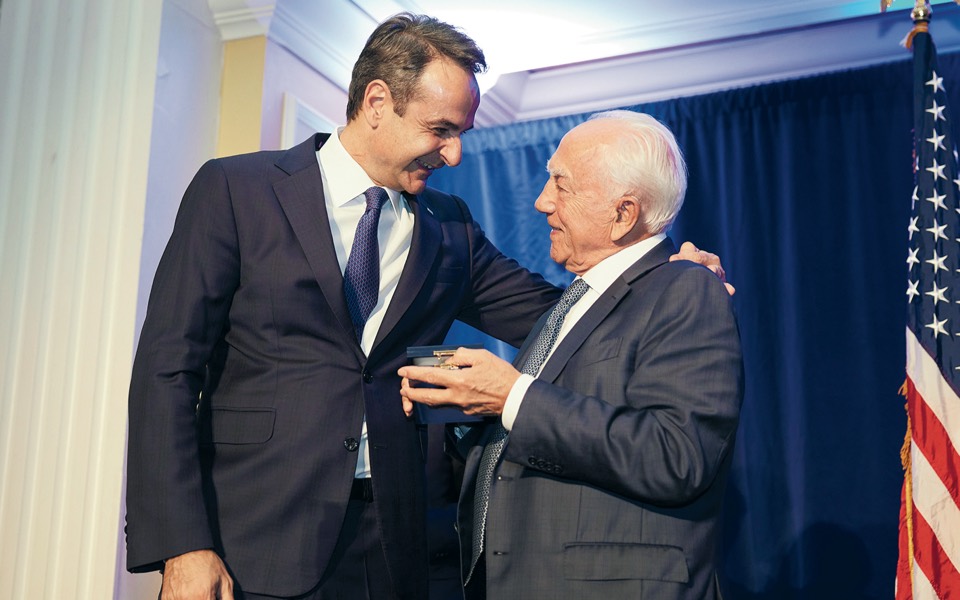
You have also worked with a lot of important Greek Americans in the political system over the years, such as Paul Sarbanes, Mike Dukakis and John Brademas.
Three very exceptional, excellent minds, extremely well educated and very intelligent. They added to the American life a lot. There is no question that the spring of knowledge – coming as Hellenism to the United States, but also to the whole world – the Hellenes that go to places like Canada, the United States, Australia, Europe, Western Europe, help countries stay democratic, love liberty, love freedom and help these countries stay strong and united. The people you mentioned helped a lot in that way in the United States. Also Paul Tsongas, Art Agnos, George Christopher and many others.
Actually, we now have five members of Congress. Let’s turn to Greek leaders you interacted with over these decades.
There was a professor by the name of Speros Vryonis. He was a student at Harvard, a professor at Harvard and then became head of the history department at UCLA. I was introduced to him back in the early 60s. He, of course, knew the history and what was going on at that time, and the dangers that Greece faced primarily from Turkey. And he had studied the Islamization of the Turkish military that was beginning at that time. And together, we started a center, the Vryonis Center for the Study of Hellenism. We had at one time six professors. This lasted about 12 or 14 years. It was to understand what was happening in an area where two world wars started in the Balkans. What was moving people in that area? The thought of people and how Hellenism could teach. The history of Greece, the Peloponnesian War etc. how they could teach the rest of us living in those areas to avoid catastrophes. Then we merged that center with the Woodrow Wilson Center for Scholars, with John Sitilides being the person that made things happen and worked there, trying to help teach Hellenism to everyone that was important or would listen or both.
US bases, Israel and university degrees
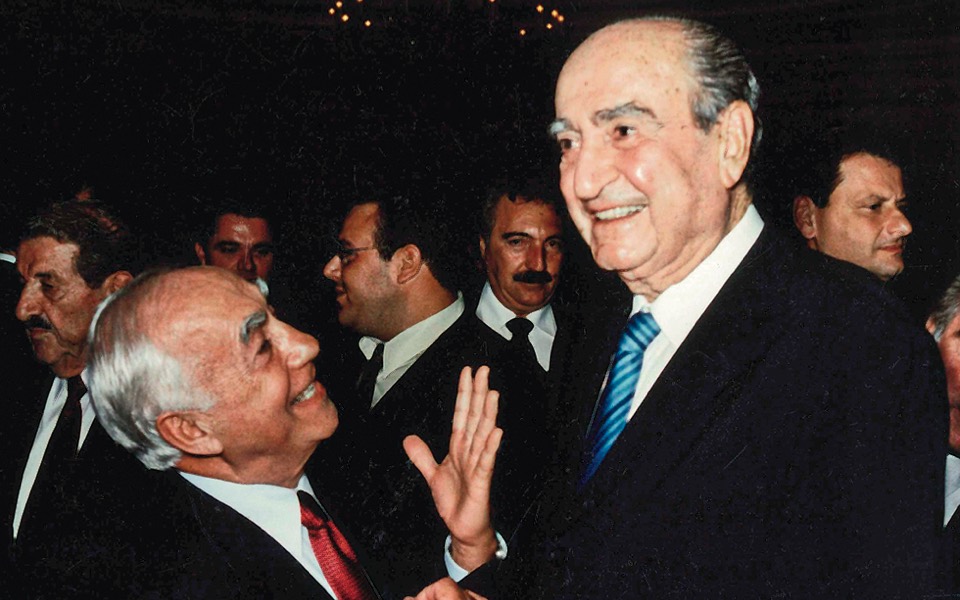
What about Greek prime ministers?
There was a gentleman who was a state senator in California. His name was Nick Petris. Very well educated in the Classics and in the modern Greeks. He loved Greece very much. He is the person that introduced me to Speros Vryonis. And also he was very close to Andreas Papandreou when Andreas was teaching at UC Berkeley. Nick Petris represented Berkeley as a California senator and they were close. When we set up the Vryonis Center for the Study of Hellenism, we came to visit Greece and to talk to the prime minister, and to the opposition. Some of the things we came to ask for were to extend the American bases. At that time was the Cold War, and Andreas kind of played a little game, but always extended them. We came to talk to Prime Minister Papandreou, about how important it would be for Greece to extend those bases. Then we also met with the opposition. And “Papa” Mitsotakis – “ο ψηλός” (the tall guy) – was in the opposition at that time. He was ready. He understood the complex problems very well in how to influence the Americans.
At one time we came and asked Andreas to recognize Israel. I said: “What in the world are you doing? The rest of the world has recognized them and here is a country that was born right after a horrible Holocaust, and you are the only ones – I think at that time – to have not recognized them. Why not?” We never got a straight answer from Andreas. But when we talked to the opposition, Kostas Mitsotakis said: “The day after I am elected prime minister, I will recognize Israel” because for Greece that is very important, especially in America and worldwide. The Jewish community is very strong. And we think a lot alike. After all, the Jews recognize that they were educated by the Hellenes, that Alexander the Great liberated them, allowed them to be free. That, according to a book, “Jews, God and History,” written by a scholar [Max I. Dimont] who mentioned that the Jews recognize that they were educated by the Greeks, by the Hellenes. And those are important relationships that we need to promote. Anyway, Mitsotakis did that when he was elected, immediately recognized Israel and in appreciation, our family, especially my daughter, Eleni, and her husband, Markos, suggested creating a chair in honor of the prime minister at Stanford University. So creating chairs at great universities where they study Hellenism, which is the light of the universe, we need to promote that.
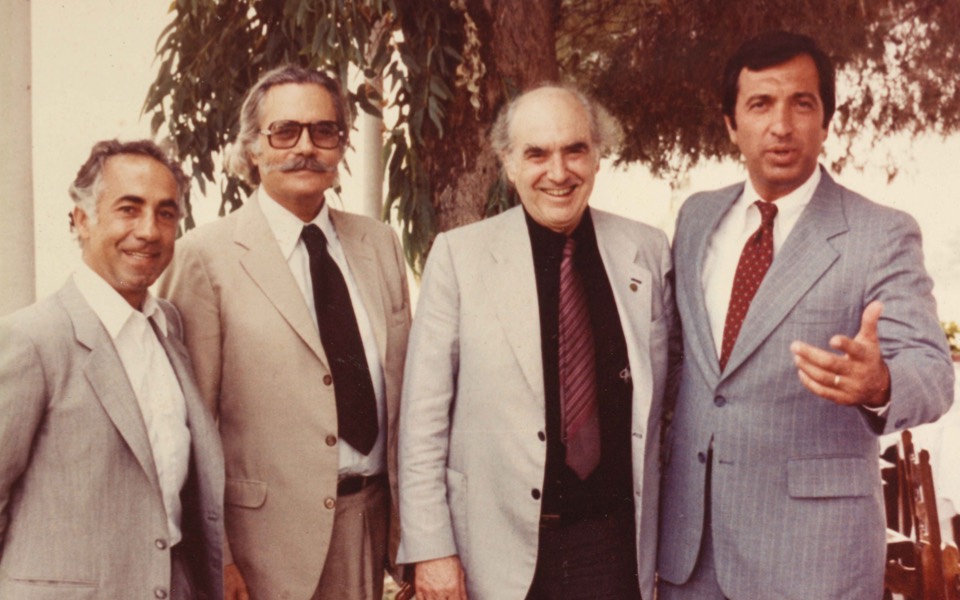
Do you remember any other cases of having a difficult interaction with a leader or the government in Greece?
I also remember, there was a company – still is – but at that time it was a $20 billion company, a high-tech company, Atmel. They were very interested in creating a major presence in Greece. High tech was at its birth. They wanted to start a major center in Athens. They had a smaller one in Patra because one of the kids had gone to school there and they wanted to do something major. Back then, a computer was half the size of a room and its cost was hundreds of thousands of dollars. They said: “We will bring those computers to Greece, but we must be allowed to work them 24 hours a day, three shifts, eight hours each, 360 days a year. Also, when we send packages from the United States to Greece through a direct flight, we need them to go through customs immediately.” So they offered to pay for an employee at customs, to give the money to the Greek government to hire someone for 24 hours a day. They would pay for it so that the information would not be delayed. One of the things they asked for was this. The other was for the computer to work 24 hours a day, all year long, and also help to identify an area that they would buy to build facilities. I presented that to Mr [Kostas] Simitis – he was then minister – and right off he says: “It is impossible for people to work during Easter or Christmas. We won’t do that.” In my opinion that set Greece back. It would have been a tremendous opportunity for our young people. We Greek Americans recognize that the young people of Greece are very, very smart kids and can do wonderful things. And they would have done those things if they had been given the opportunity. Atmel went to France and when they opened their facilities, the headlines were “The Greeks are back.” But that was in France.
What do you remember most from your interactions with Kostas Karamanlis, George Papandreou, Antonis Samaras, Alexis Tsipras and Kyriakos Mitsotakis?
We’ve met with all of them. Discussed with them to understand the need of peace in this area. And to see how they viewed the United States, to make sure that no misunderstandings like the colonels after the coup happened again. They all received us kindly and participated. I remember we tried to get Papandreou to recognize degrees from foreign universities. It is hard to understand why it still hasn’t happened. We were finding reluctance on the part of other Western universities – American and others – to open branches here. We’re talking about Harvard, Stanford, UC, Georgetown University, to open branches in Greece. They should. Because this is where civilization started. Many advances and many setbacks on that issue. But we could not get that done. We lobbied for it with everyone. They couldn’t get it done. Very disappointing.
Helping avert a crisis with Turkey
Do you remember the Imia crisis, your involvement and efforts to avert a war?
I do remember it. It was a very difficult time, and they asked for my help. We did everything we could to prevent war, to prevent people from being killed for no reason. And fortunately, the problem was solved without a war between Turkey and Greece. This was a very, very difficult time and unfortunately, this difficulty continues. The president of Turkey now is a barbaric man who wants power forever. And that makes people very difficult, they end up being afraid of their own shadow.
Did Bill Clinton play a role in the Imia crisis in 1996?
Oh, absolutely. He made the call. There was a call made requesting that the president be informed of the difficulties and that message was conveyed to him, and he immediately intervened to make sure that things were quietened down.
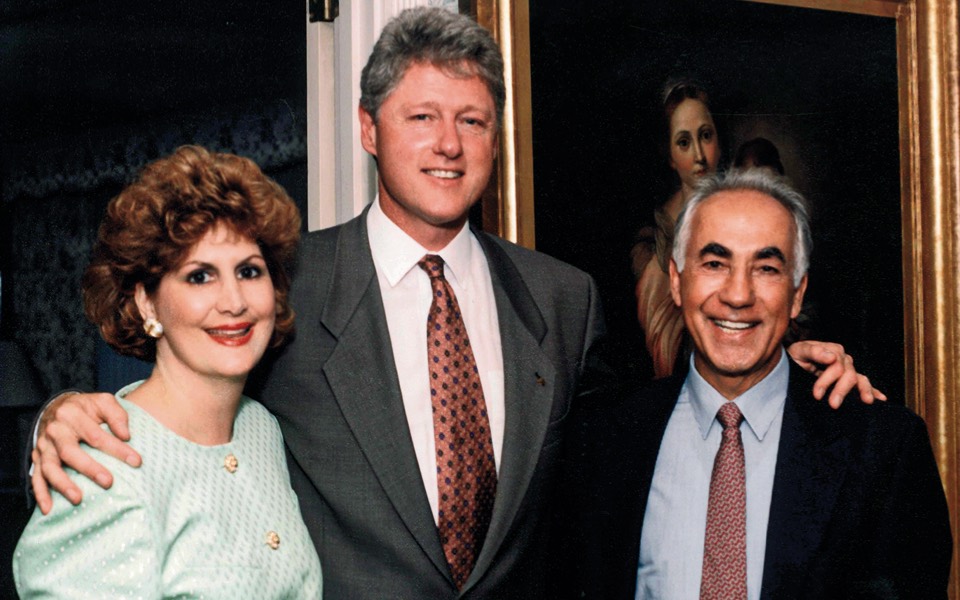
So, you feel Turkey responded to Bill Clinton mainly, reacted to the intervention of the US president?
I believe so, yes. It looked like the Turks were looking for a reason to start a conflict, and it almost happened. It was a very critical time. However, at that time, Greece was extremely well prepared on its own to repel any advances by the Turks. The leadership was exceptional. The preparedness. I remember those discussions.
Do you feel US presidents are even-handed between Greece and Turkey? Do you feel they tried to be helpful and objective?
Turks have done an incredibly positive job lobbying America for many, many years. During the Cold War, they spent an incredible amount of money to lobby for the importance of Turkey. So for a long time, Turkey was viewed as a loyal and very important ally of the West and America, of course. However, things happened that showed their true colors. They only care for themselves and no one else. Not for the world as a whole. Just for Turkey. They denied the United States the use of base of Incirlik at a time when the United States needed it. Finally, the Americans are beginning to understand that the Turks are not a reliable ally. But, is the Turkish territory and the people – not the leadership – important? Of course they are. Eighty million people. They are important. How the politics will work, we don’t know. Every day is different. The Turks are aggressive lately, as you know, very aggressive to promote themselves. Unfortunately for the world, they pretend to be democratic, but they are not. They are a dictatorship. And dictatorships have many, many wrongs. They cannot function for the benefit of the world. How is all this going to work? We’ll see.
Education as the ‘light of humanity’
You talked about education, and also about the importance of the relationship between the two countries. What is your message to the next generation of Greek Americans, what should their focus be?
Study Hellenism so they know themselves, what Hellenism stands for. An example of a Greek American is George Marcus from San Francisco. Born in Greece. His parents moved to the US when he was 2 or 3 years old. He’s a very successful businessman and very much involved with Hellenism. He is surrounded by enlightened people that were born in Greece and live in the US, and they guide his effort to unite the Greek Americans in America, first and foremost to get to know each other and, if possible, to do business with each other, always for the sake of helping Hellenism.
I try to teach my own children and grandchildren as much as I can and set an example. My second child, my daughter Eleni, at 8 years old came to me once. One of her friends had brought a paper that her ancestors had landed in Plymouth Rock in America. And my daughter said: “Dad, look at this. Isn’t that something?” I said, “Of course it is, but it’s not as important as where you come from.” She said, “What do you mean?” “Well, you are the granddaughter of Socrates and Plato and Aristotle. So, nobody is as lucky as you are to be the grandchild of people like that.” She understood it. She studied. She came to Greece, worked on the dig in Tegea, got involved in politics, and she is today lieutenant governor of the state of California. And her husband is a scholar at the Hoover Institute. Their children, who also speak fluent Chinese, understand the history of Hellenism and of our world, and they are the future – and many, many other children like them. So we try to establish chairs at the universities so many philhellenes will come out of them.
Going beyond just the US. With respect to helping the motherland, what can and what should the Greek diaspora – of which you are one of the greatest examples – do now and in the future?
Promote education. That’s it. Education is the sun, the light of humanity. It started with Greece. So we need to teach Hellenism, the importance of free thought, of being involved in the life of a city or a state or a country, for all of us to be involved in the affairs. That way we can watch out for things that are good for Hellenism.
Thank you and congratulations on the award, established by Kathimerini to honor a diaspora leader, and needless to say you were the natural choice to be the first recipient.
Thank you very much. It’s a great honor and I accept it on behalf of all the Greek Americans who work, love Greece and always talk about it with affection. They love their homeland because it is the light of the world.
